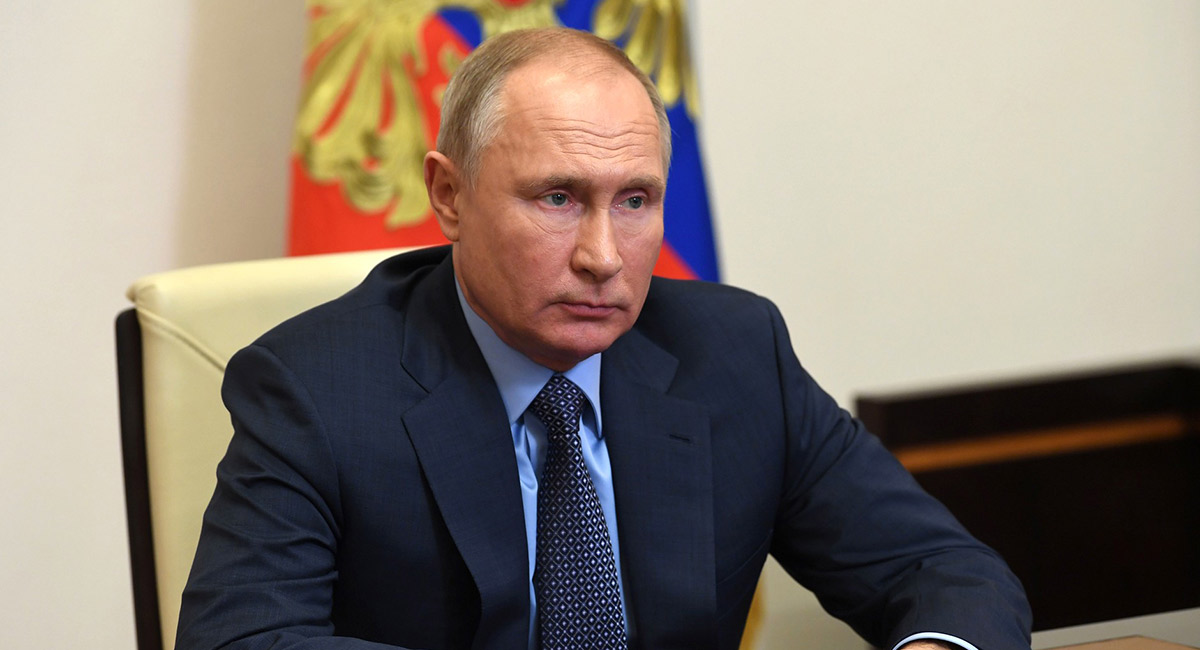Among collectivist narratives, none is more powerful than nationalism, and among imperial claims, none is more devastating to peaceful coexistence than the idea that a neighboring country belongs to an imperialist predator, based on a foundational myth. Until the West understands this, Russian President Vladimir Putin and whatever nationalist succeeds him will be a danger both to regional stability and to world peace.
Winston Churchill starkly defined Russia as “a riddle, wrapped in a mystery, inside an enigma”—that is, a force beyond the reach of rational comprehension. The easy way to characterize Putin is to say that, having been trained as a KGB spy and stationed in East Germany, whose Stasi secret service was the most brutally efficient of the Soviet empire, he is trying to revive the Russian empire, driven by a megalomaniacal urge to satisfy his thirst for power and his imperial instincts.
But this analysis falls short of capturing the essence of the problem.
It does not mean we are not in the presence of a megalomaniac, an autocrat willing to inflict pain on friends and foes alike to achieve his ends and whose police-state mentality and nostalgia for imperial glory relates back to his Soviet background.
We are—but we are also in the presence of a sophisticated nationalist who acutely understands the power of ethnic and cultural myth. He believes it. More important, he intuits that millions of his compatriots do too. He also intuits that constructing a nationalist discourse based on such a myth is the key to holding on to power because so many Russians consciously or unconsciously relate to the myth.
As always, the foundational myth is a mixture of truths, half-truths, and scandalous lies; a manipulation of history; an oversimplification, powered by propaganda, of complex historical processes. Yes, Kyiv was the center that brought together under national rule many eastern Slavs in the ninth century. But the ethnic and cultural mix was such that Baltic and Finnic peoples could make just as legitimate a claim on parts of Ukraine as Putin can. The fact that Moscow, among the many entities and outposts into which the Kyivan Rus splintered in the 11th and 12th centuries, emerged as a strong principality with eastern Slavs in no way diminishes the close connection between the disintegrated Rus State, including Poland and particularly Lithuania, and the European West. Galicia, the western region of Ukraine, remained under Lithuanian control and influence for a very long time. (Lithuania, let’s remember, was one of the biggest European empires.)
Moscow’s legitimacy under the national myth is highly dubious since the initial growth of the Duchy of Moscow came at the price of its being a vassal of the Mongols and later, through the conquest of neighboring political entities against the will of those enslaved in what eventually became Czarist Russia. Those were not grateful Slavs who saw in Moscow the revival of Kyivan Rus, but aggrieved victims.
Staking the national myth on the idea that Donbas, the eastern province of Ukraine, is ethnically Russian is a grotesque travesty of historical truth since even as late as the turn of the 20th century, no more than one-quarter of its inhabitants were ethnic Russians. We might also mention that a huge part of Ukraine, despite centuries of Czarist, then Soviet, imperialism, never renounced its strong bent towards Western countries. That is why the Galician region turned politically towards Austria as soon as the Soviet empire collapsed in 1991.
None of this matters in Putin’s foundational national myth. Millions of Russians view Russia, Ukraine, and Belarus as one country derived from the Rus state, and thus anything that threatens Moscow’s zone of influence in the regions that were once part of Kyivan Rus as an existential threat—regardless of the fact that millions of Ukrainians, even many who are Slavs, believe that the national myth cannot be the basis for destroying their freedom and their choice to associate, politically, economically, and culturally, with whomever they want.













